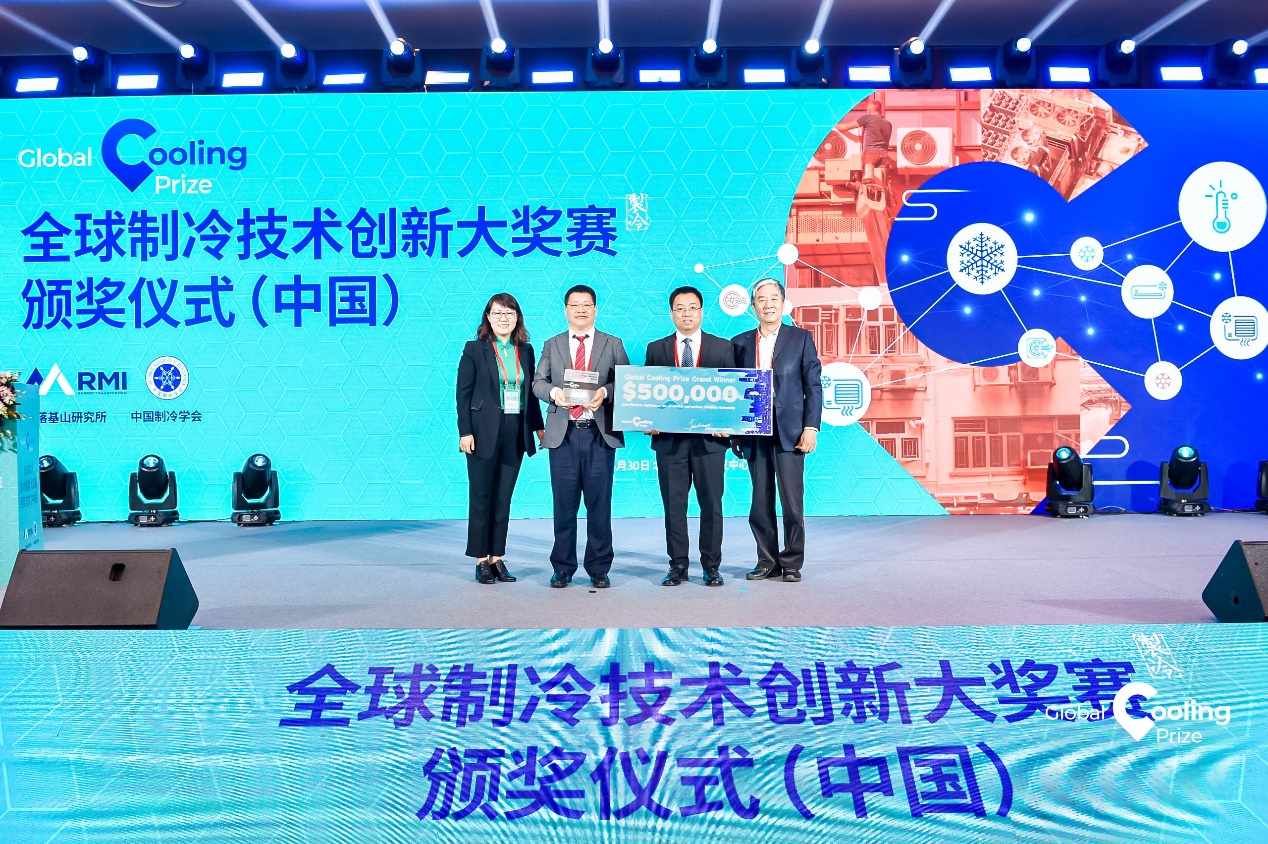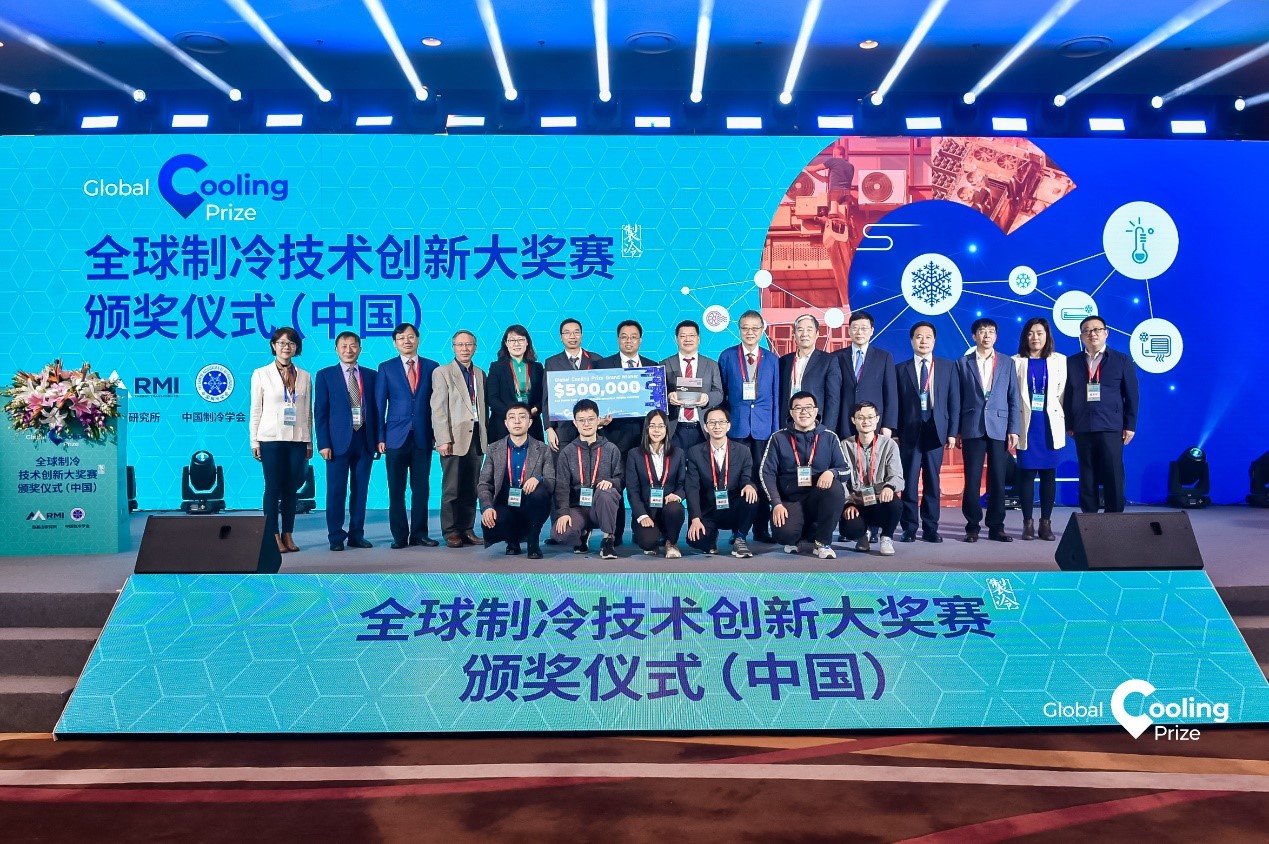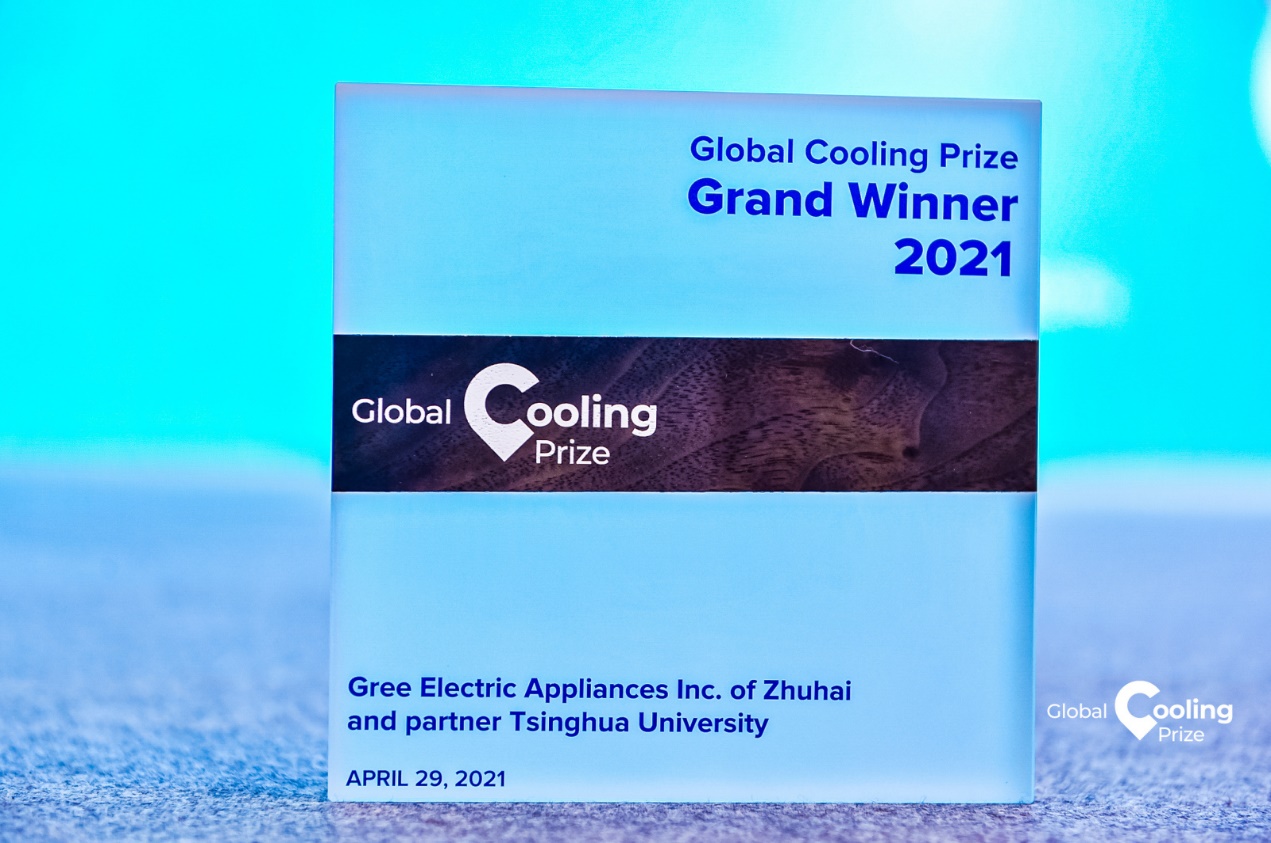On April 30, the award ceremony of the Global Cooling Prize (GCP) was held at the Beijing National Convention Center. Tsinghua University, partnering with Gree Electric Appliances, was awarded the Grand Prize. Supervised by Associate Professor Wang Baolong and Professor Shi Wenxing from the School of Architecture, the Tsinghua/Gree joint team exceeded other teams, including teams from Massachusetts Institute of Technology and the University of Cambridge, and won the final award medal and a prize of 500,000 US dollars.
In the award ceremony, Iain Campbell, chairman of the GCP organizing committee, announced "the solution of Tsinghua/Gree has achieved an 85.7% reduction in climate impact" and believed this technology "has become an important part of the global climate change solution." Academician Jiang Yi spoke highly of the winning technology in his opening speech: "The achievement of Gree and Tsinghua fully demonstrated the innovative capabilities of China in the field of refrigeration and air conditioning. That proved China can play a key leading role in decreasing the climate impact of global HVAC industry".

Liu Yanhua, Director of the National Climate Change Expert Committee and former vice-minister of the Ministry of Science and Technology, presented the award to the Gree-Tsinghua joint team on behalf of the organizers.


The GCP is jointly sponsored by the Rocky Mountain Institute, the Government of India, and Mission Innovation. It is co-hosted by the Rocky Mountain Institute, Conservation X Laboratory, the Energy Efficiency Economics Alliance, and CEPT University in India. It aims to explore breakthrough innovative technology in the refrigeration industry to solve climate challenges. The GCP was launched in November 2018, convening innovative companies and research teams around the world, and encouraging them to develop breakthrough refrigeration technologies that can reduce the climate impact to one-fifth of the current market standard air-conditioning level, and guarantee that the cost of this technology is no more than twice that of the benchmark air conditioner. More than 2,100 teams from 96 countries signed up for this competition. 139 teams submitted detailed applications. In November 2019, after being reviewed by the technical committee, eight finalist teams were selected. The finalists prepared prototypes of their concepts which were field and lab tested at locations in India between Sept. 2020 to March 2021.
Gree/Tsinghua’s cooling solution integrates advanced vapor compression refrigeration, evaporative cooling, ventilation, and photovoltaic direct-driven technology, which efficiently utilizes renewable energy sources and free cooling sources. The innovative hybrid solution is designed to have an automatic, climate-smart operation in three modes - vapor compression refrigeration, direct evaporative cooling, and ventilation. It can operate individually or in parallel to provide optimized indoor temperature and humidity control according to the weather conditions. The vapor compression refrigeration system adopts a parallel compression cycle with dual evaporation temperature. It is realized based on a specially-designed triple-cylinder compressor, a low GWP refrigerant, and an improved-designed evaporator and condenser. The ventilator, operating in ventilation mode or direct evaporative cooling mode, strives to decrease the indoor cooling load and eliminate the latent load. The energy consumption of the cooling solution can also be decreased by the ventilator even when the outdoor air has a higher specific enthalpy than the indoor air. A small PV panel is integrated into the power system by a smart modulator for power transformation and distribution.




